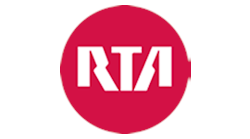- One word to describe yourself: Committed
- Favorite hobbies: Shooting trap and sporting clays
- Fun fact about yourself: I have played drums, guitar and sang in local bands for 20 years.
- Favorite station or stop that you have ever visited or frequent: The airport. I remember my kids being so excited about riding the train in the tunnel and how they liked the art on the walls. Every time I am at the airport station, I remember my kids running up and down the platform.
- Favorite route you have ever ridden or frequent: I like the Red Line trip headed east into downtown. The views of the flats and city are great as you are approaching Tower City.
Chris Weil has been with the Greater Cleveland Regional Transit Authority (RTA) for six years in the electronic repair department. He began as a technician and worked his way up to supervisor; he’s now the electronic repair manager.
Weil has been leading several new preventive and predictive programs to extend the operational up-time of equipment while boosting reliability. One of the areas that the agency has applied predictive maintenance is to the GFI fareboxes. RTA uses probe data to analyze error percentages for fare media being misread or printed with errors. Weil has developed this program during the past two years, finding it most efficient when looking at 10-day trends of data for each coach.
Based on the pattern of errors, the agency has structured maintenance and replacement parts for different conditions. The first year of the program resulted in a 33-percent reduction in errors. This past year saw improvements of another 27-percent reduction in errors. That is a reduction of more than 259,000 fare media processing errors in the past two years. Today, the program continues, and constant refinements are being made. The agency ended 2019 with an annual record low of 2.28-percent error rate, signifying a 65-percent improvement in the error rate from before the predictive maintenance program.
Another modification Weil made in the administering of this program reduced the parts consumption by 69 percent, while maintaining the record low error rate in 2019. Since the success of this program, the agency has initiated conditions-based programs for replacing Apollo DVR hard drives and module rebuilds and servicing fixed-location ticket vending machines.
Another area that needed improvements was the video recording systems in the light-rail fleet. The video system was designed years ago by a vendor and incorporated components used in office conferencing applications. The Integrian DVRs at the heart of the system were obsolete and unsupported.
Weil worked with his rail camera tech to redesign the system to incorporate a modern Apollo DVR with all the peripheral hardware. After months of inter-departmental cooperation, Weil’s department piloted and vetted the design. This work allowed them to use in-stock DVRs to retrofit the LRVs within a day of the Integrian DVR failing. Based on the design and the large cost savings over hiring a vendor to design a new system with new hardware, Weil was recognized as employee of the month for this project.
Over the past two years, funding was secured to replace the radio communications system. The legacy system was obsolete EDACS analog radios that were out of both production and support. Weil had been purchasing mobile and portable radios off eBay to cannibalize in the agency’s lab for parts to keep the rolling stock communicating. Weil worked alongside the project manager for two years as the technical lead in the hardware selection, system design, installation plan and operational execution of this program. They are still on pace to finish the installations on all the fleets by this fall,even with COVID-19-related delays.
During the process, Weil created training for his technicians to effectively troubleshoot the new system installation efficiently. He spent four months in the districts working off a bus lift on a piece of cardboard to manage his 37-technician department while stewarding the installation process. This hands-on approach allowed them to identify and remedy numerous software bugs and installation issues over all the fleets during the install phase. Mitigating the amount of issues that need to be corrected retro-actively gives the operators the best possible system from day one on the coaches in operations. Weil was asked to speak at the 2020 Think Transit conference on best practices for preparing fleets for a communication system upgrade before it was canceled due to COVID-19.
Weil had worked extensively before the installation phase with his technicians to audit full functionality of not only the communications side but PA, passenger counters, signage, stop request, turn warning and system discreets. The testing procedures created where incorporated into the acceptance testing procedures for new system installs. Testing and correcting issues ahead of time allowed Weil’s team access to good data the minute the coaches came online with the new radio system
“Embrace accountability. Anyone that manages operationally critical technology must be of the mindset that they are accountable for continuously evaluating their maintenance procedures and programs to achieve maximum performance. Technology is ever evolving so integrating new features and hardware is a continuous process. You cannot prevent defects from happening, but you can prepare your staff and keep your equipment in peak shape as long as you take accountability for continuously managing processes and executing programs.”
“The most challenging part of my job is managing the diversity of our operations... I keep myself familiar with how equipment is installed across dozens of vehicle types so I can provide guidance on troubleshooting and repair. I investigate how other departments are using our systems, so I know how to maintain the equipment to support their operations. I take an active role in technology upgrades so I can provide input and support project oversight.”
“I enjoy the complexity of my job...I get the opportunity to work with industry experts here at RTA, analyzing system needs and executing solutions. Most of all I am not in a silo. My areas overlap with mechanics, management, operators and directorship of every district. I share common ground with peers from all areas across the authority network. While this job can be very challenging, I find it immensely rewarding too.”




